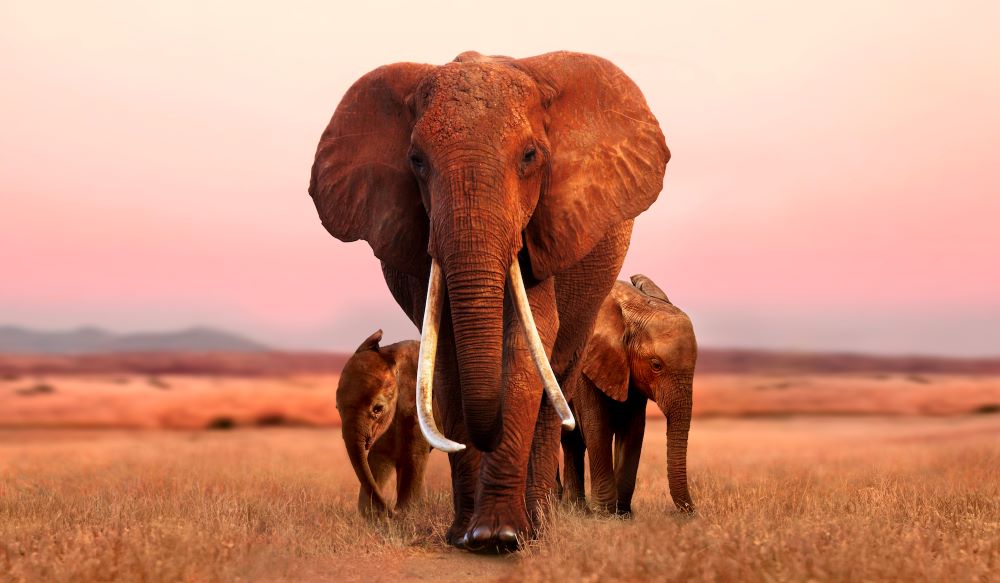By Vanessa Zimmer
On Earth Day 2023, we could use a hefty dose of optimism.
With so much evidence suggesting we’re in a downward spiral, it’s nice to occasionally step back and observe — nay, bask in — the good stuff. Take, for example, a sparkling oceanscape, the ridiculously sharp angles of the mountains, a blazing sunset over freshly turned black soil, a stranger extending a helping hand, a mind that prevails over a difficult matter.
While we’re constantly contemplating the hard work of sustaining life on Earth — the need for clean air, crops, compassion, and so much more — we also want to acknowledge our planet’s beauty and complexity — and appreciate its value.
So, with this watchlist of films from the Sundance annals, chosen with the help of the Festival programmers, we hope to celebrate what’s right in our world — a world worth preserving — and all that we hold close to our hearts.
After Life (1999 Sundance Film Festival) — If you were allowed a single memory to take with you for eternity, what would it be? That is the premise of this Japanese film written and directed by Hirokazu Kore-eda and set in a way station where the deceased stop after death to make that profound decision. The director was inspired by his grandfather’s experience with Alzheimer’s and built the story around interviews with elderly Japanese residents, according to the Festival Program Guide, creating a “striking testimony to the fragility and fluidity of memory.” Check viewing options here.
Whale Rider (2003 Sundance Film Festival) — Pai’s twin brother was destined to be chief of a Māori village on the coast of New Zealand, but he died at birth, along with their mother. Raised by her grandfather, Chief Koro, Pai takes an interest in the leadership role. But the chief has always been a male descendant of the Whale Rider. “An extraordinarily beautiful film filled with sweeping landscapes, whales, and a breathtaking performance by the stunning young first-time actress [Keisha] Castle-Hughes, Whale Rider is an emotionally powerful story of love, rejection, bravery, and destiny,” Shari Frilot writes in the Festival Program Guide. Castle-Hughes was nominated for a Best Actress Oscar. At the Festival, the film won the World Cinema Audience Award. Check viewing options here.
March of the Penguins (2005 Sundance Film Festival) — Real heroes wear tuxes. Kidding! Luc Jacquet documented what Sundance Film Festival programmer Trevor Groth called “one of the greatest heroic sagas of all time” when he filmed the annual journey of the emperor penguins. Each year, the penguins trek across the frozen land of Antarctica to their traditional breeding grounds to date, mate, and then protect and feed their newborns. In all seriousness, it’s a beautiful, awe-inspiring, and heartwarming tale. The film won the Best Documentary Oscar. Check viewing options here.
Life in a Day (2011 Sundance Film Festival) — The idea is almost as intimidating as capturing time in a bottle: Let’s crowdsource a film about a single day on planet Earth. A cinematic time capsule, if you will, of July 24, 2010. Director Kevin MacDonald and team received some 80,000 submissions, more than 5,000 hours of footage in all. “Their task was to create a unique cinematic experience: in beautiful and harrowing honesty, what it is to be alive on Earth today,” according to the Festival Program Guide. Check viewing options here.
The Boy Who Harnessed the Wind (2019 Sundance Film Festival) — In a film based on a true story, a Malawian schoolboy vows to save his farming family and his poor village when drought threatens a famine. In the face of his own father’s misgivings, young William researches building a windmill from a bicycle and spare parts to pump water to the village. Actor Chiwetel Ejiofor makes his directing debut, winning the science-themed Alfred P. Sloan Feature Film Prize in the process; he also portrays the father. “Based on [William] Kamkwamba’s autobiography, The Boy Who Harnessed the Wind brings the title character’s ingeniousness, perseverance, and hope to the big screen, reminding us how boldness and innovation can unlock seemingly impossible solutions,” according to the Festival Program Guide. Check viewing options here.
The Elephant Queen (2019 Sundance Film Festival) — Welcome to the matriarchal world of the African savanna elephant, where queen Athena leads her herd in search of food and water. Mark Deeble and Victoria Stone direct this documentary “[f]eaturing beautiful cinematography and honeyed narration” by Chiwetel Ejiofor. True, there is sadness in the circle of life — but also beauty in a species that grieves its own. Check viewing options here.
Words from a Bear (2019 Sundance Film Festival) — N. Scott Momaday ranks among our planet’s most renowned Native American storytellers. When his House Made of Dawn won the Pulitzer Prize for Fiction in 1969, it was widely considered a breakthrough moment for Indigenous literature and culture. “In Jeffrey Palmer’s directorial debut, distinctly expressive animations intersect with stunning footage of the Great Plains as Momaday draws from his Kiowa ancestry and identity to pose universal questions about how we connect to our origins, each other, and the Earth,” according to the Festival Program Guide. The documentary was a project in the Creative Producing Summit and the Time Warner Foundation Native Producing Fellowship, both in 2017. Check viewing options here.
32 Sounds (2022 Sundance Film Festival) — Beauty is realized not just in the visual, but in the aural as well, as Sam Green illustrates in this exploration of 32 audio experiences. The film examines the power that sound has upon our lives. Rolling out in theaters beginning April 28.
Blueback (2023 Sundance Film Festival) — Marine biologist Abby (Mia Wasikowska) returns to her seaside childhood home in Australia to care for her ailing environmentalist mother. There, she finds reminders that spark memories of diving among the ocean creatures (including the friendly Blueback, a rare blue groper) and the seeds of her own activist lifestyle. Praised for its engaging cinematography of the underwater scenes, the film is based on a novella by Australian writer Tim Winton. Directed by Robert Connolly. The film was released in U.S. theaters in early March.







